- AI Weekly Wrap-Up
- Posts
- New Post 8-27-2025
New Post 8-27-2025
Top Story
Study: AI is drying up entry level jobs
A new study by Stanford researchers finds objective evidence that AI is significantly decreasing hiring for entry level jobs in several industries. Based on analysis of ADP payroll data from 2022-2025, the study found that sectors like customer service and software development saw a 16% drop in jobs for workers age 22-25 after generative AI adoption. Meanwhile, jobs for senior workers were spared, and some senior employees had even more job opportunities than before. The study concludes that AI isn’t (yet) flattening industries - it’s just flattening career ladders (by pulling out the lower rungs.)
In related news, outsourcing firms are starting to struggle, as AI can do boring repetitive tasks like data entry even cheaper than offshore service centers with cheap labor. Tata Consultancy Services of India announced layoffs of 12,000 workers, approximately 2% of its total. Outsourcing is a $283 billion sector, and it could suffer a massive retraction with cheap AI agents reshoring the work to the US.
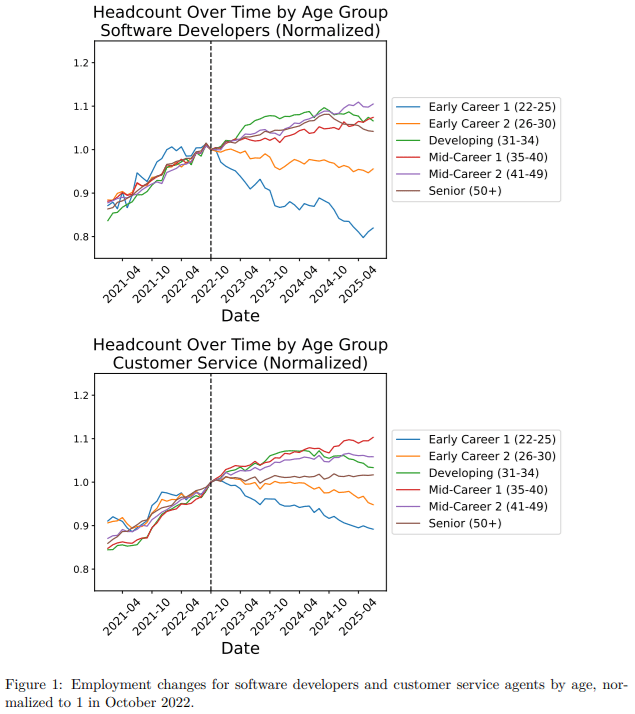
Clash of the Titans
Google’s Pixel 10 wants to be your new iPhone
As Apple stumbles with its AI upgrades to the iPhone, Google tries to pounce. Last week Google announced its new Pixel 10 smartphone, chock full of AI goodies. The new Pixel has a dedicated AI chip, the Tensor G5, running a local AI model, the Gemini Nano. This means that lots of AI tasks can run directly on your phone, which makes these tasks fast and cheap - no cloud delays, no cloud processing costs.
Features include a cross-app assistant called Magic Cue,, which gives helpful assistance for tasks that may need more than one app to complete. There is also real-time Voice Translation, which allows speakers of different languages to converse with minimal lag. Google also includes access to its state-of-the-art image and video generation tools, Imagen and Veo. The Pixel will also allow you to create full songs just by humming or singing into its Recorder app. It will summarize voice mails and give you the action items. And lots, lots more. Google is trying to reimagine the smartphone in the Age of AI. Apple, take note.
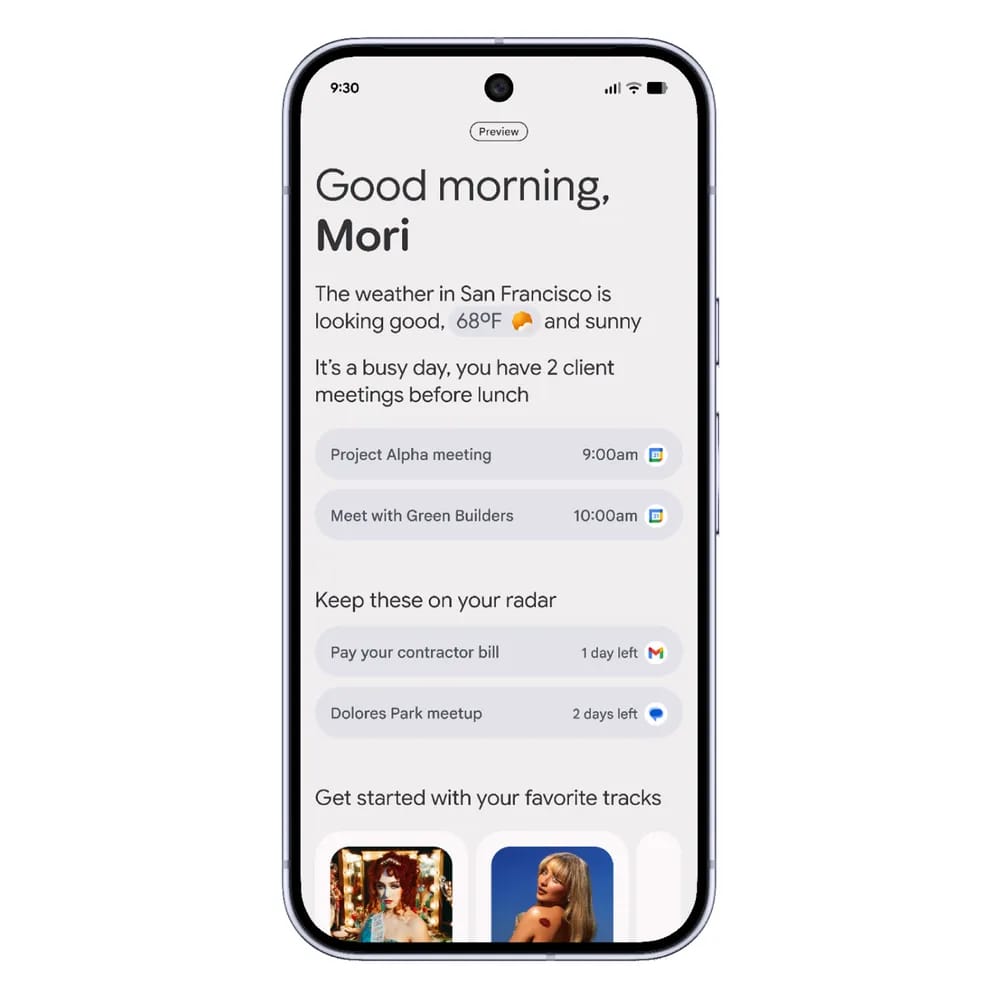
Google’s new Pixel 10 smartphone is trying to be the iPhone of the AI Age.
Nvidia designing new chips just for China
Despite being buffeted by the AI embargos of first the Biden Presidency and now the Trump administration, Nvidia keeps working on ways to keep China as a customer of its high-end AI chips. Its made-for-China H20 chips have been a commercial flop, with China threatening its native AI companies with loss of government business (which is half of the country’s economy) if they use the dumbed-down Nvidia chips. China’s regime is pushing to develop its own chip technology, as shown in the recent news that DeepSeek’s newest update (see story below) was trained on chips by Huawei. Nvidia’s CEO Jensen Huang floated a “pay to play” deal with Trump in which 15% of high end chip sales to China would be paid to the US Treasury, which - who knows? - could still happen. Meanwhile, Huang has his engineers at Nvidia designing special chips for China that meet the letter of the export ban but are powerful enough to be attractive to China’s government. It’s a long shot, but Huang, who began his working career as a dishwasher at Denny’s, and who started Nvidia only to face near-bankruptcy almost immediately, doesn’t know how to quit. He will no doubt pursue the immense China market to his last breath.
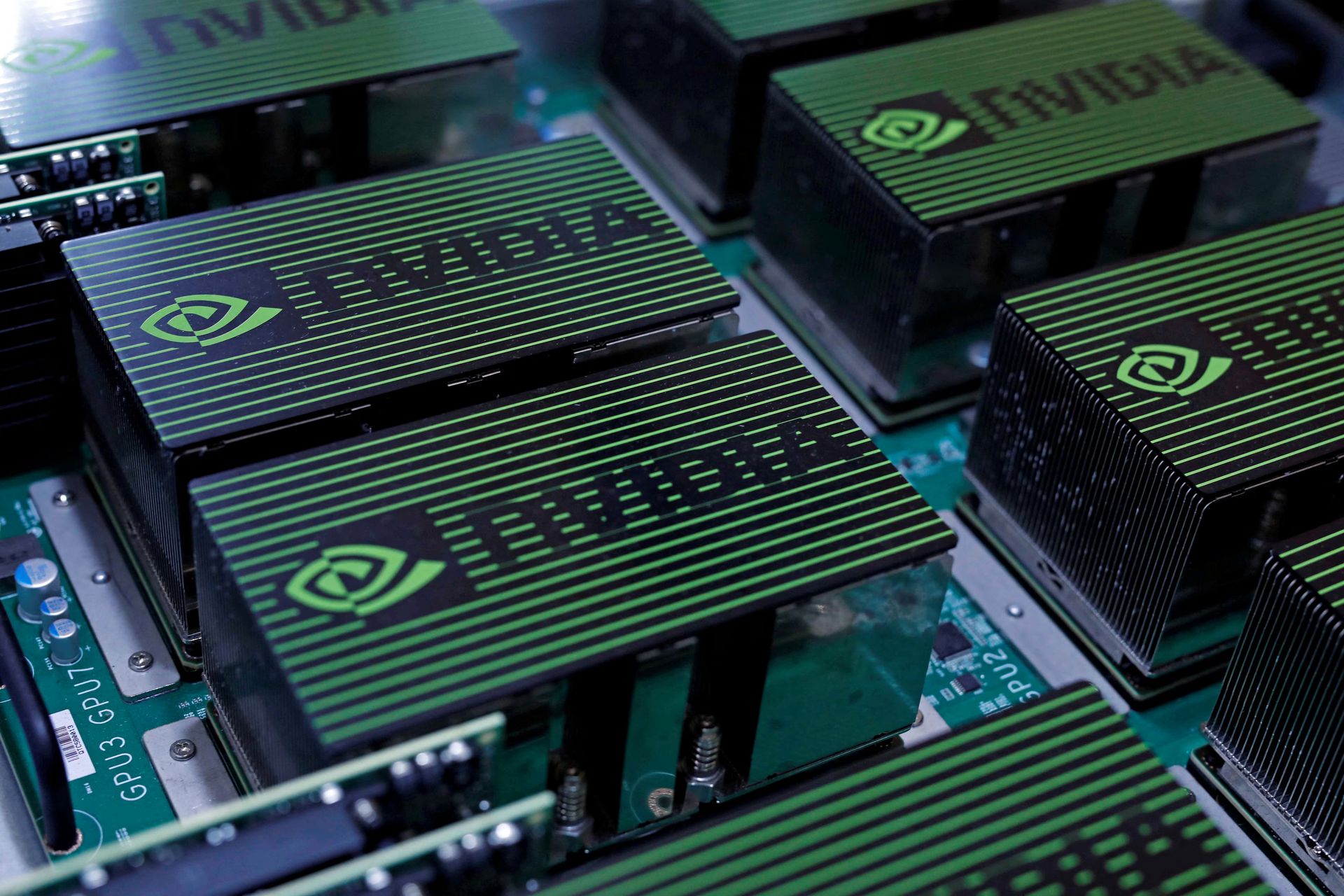
Nvidia CEO Jensen Huang pursues a chip design for China that both Trump and Xi can like.
44 Attorneys General warn AI companies that they will be held accountable for any knowing harm to children
On Monday, an open letter signed by 44 US State Attorneys General was sent to 11 chatbot and social media companies. The letter said in part:
“You will be held accountable for your decisions. Social media platforms caused significant harm to children, in part because government watchdogs did not do their job fast enough. Lesson learned.” It continued, “The potential harms of AI, like the potential benefits, dwarf the impact of social media. We wish you all success in the race for AI dominance. But we are paying attention. If you knowingly harm kids, you will answer for it.”
The stern letter was prompted by media stories of AI chatbots victimizing vulnerable users, such as the elderly man with dementia who fell to his death while rushing to a fake date with a flirty chatbot who promised to hug and kiss him and even gave him a fake address to meet. Leaked documents from Meta/Facebook had jaw-dropping ethical guidelines such as (quote): “It is acceptable to engage a child in conversations that are romantic or sensual.” There have also been multiple lawsuits against AI companies whose chatbots assumed personas that entered into romantic relationships with young users who subsequently committed suicide.
The AGs are tapping into a widespread feeling that social media companies have been too cavalier about the harms they have caused, especially the harms to children. The pendulum may be swinging back.

44 Attorneys General promise that the long arm of the law will hold AI companies accountable.
Fun News
Google’s “Nano Banana” may spell the doom of Photoshop
AI model makers often first launch their newest products anonymously, with fake and often whimsical names, in order to gather user feedback (and make final tweaks) before the official launch - like an out-of-town tryout of a Broadway-bound show. Lately a new image editing model codenamed “Nano Banana” has taken the AI community by storm. It makes editing a photo or other image as easy as just telling the model what you want - remove background people, change a person’s shirt to a different style or color, add a T. Rex in the foreground, or whatever. And Nano Banana just does it. It is so powerful, precise, and intuitive, that Adobe better be doing some serious AI-upgrading to its venerable, industry-leading, but notoriously hard to use Photoshop image editor.
Having proved itself on the road, Nano Banana revealed its true name: Google’s Gemini 2.5 Flash Image (bo-rring!). It can be accessed for free with the Gemini app on your smartphone, or by navigating to aistudio.google.com on your PC or Mac.

Demonstration of Nano Banana’s image editing capability from a simple text prompt.
China’s DeepSeek open source upgrade rivals the best of the West, and at a fraction of the cost
Chinese chatbot DeepSeek first shocked the West with its robust performance, despite its sparing use of computing power, in January of this year, causing Nvidia’s stock to crash by 17% in a single day. The $600 billion in losses stands as the largest single-day loss in stock market history. Now DeepSeek proves it is no one-hit wonder. Its latest v3.1 upgrade again rivals the top models in the US (much improved since January) in performance, it was trained on all-Chinese Huawei chips, and is so efficient that its cost to run is a fraction of the cost of the US models. To top off this tour de force, Deep Seek v 3.1 was released as open source, free for the world to use and tinker with. Mic drop.
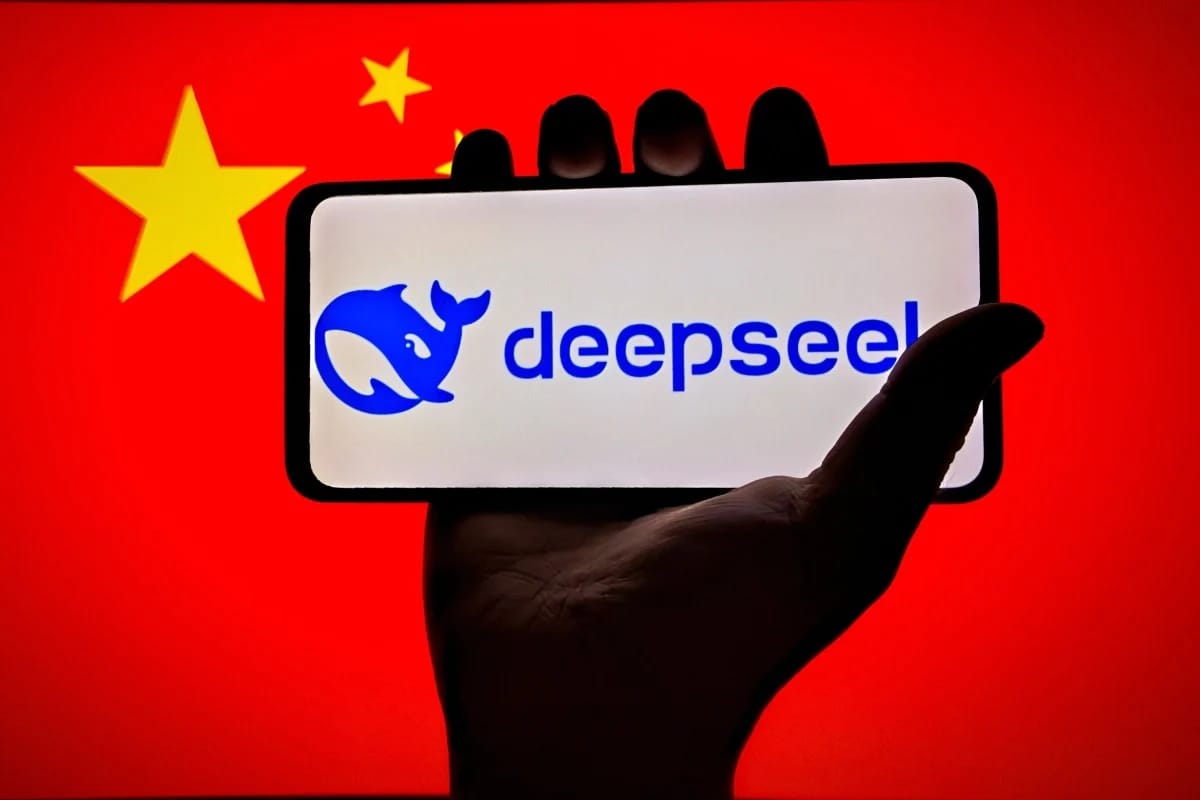
A Star is Born.
Electricity rates are spiking due to usage by massive data centers
As AI companies invest so massively in building data centers that it is actually floating the entire US economy (see our previous reporting), some of the bills are starting to come due. For instance, electricity rates are soaring across the country, and study after study concludes that the major cause is the escalating usage coming from large data centers being built for AI. Most states and localities are eager to get the jobs associated with building and maintaining data centers, and so often cut deals for the rates to the AI companies that don’t fully cover the costs of building the grid and the power plants that will be required to serve them. So the power companies push the uncovered costs to the consumer ratepayers. Rates in the 13 states in the Eastern US served by PJM jumped so drastically due to the influx of data centers in Pennsylvania and elsewhere, that Pennsylvania sued PJM, Maryland passed emergency legislation, and New Jersey’s Governor demanded the CEO’s resignation. Rooftop solar, anyone?
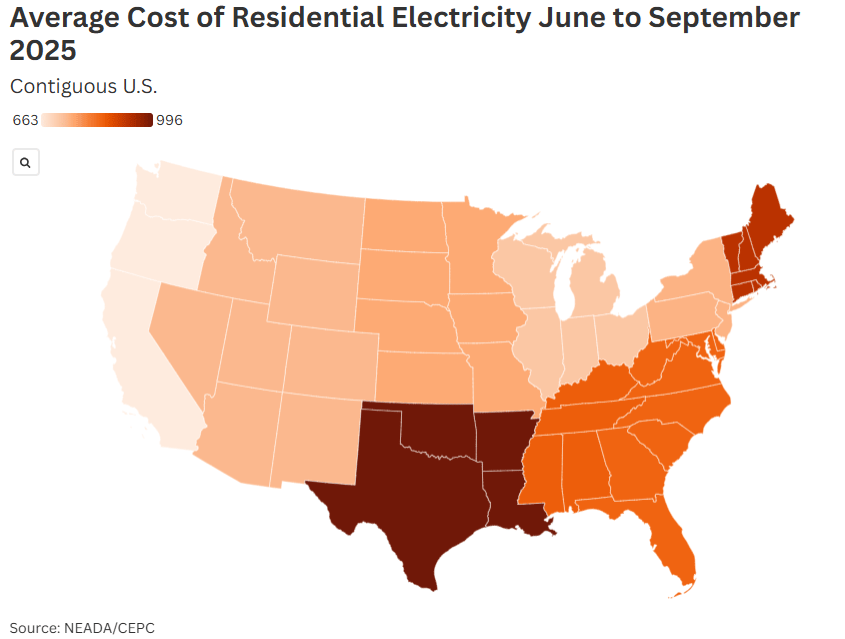
Rates are soaring across the country, driven largely by massive usage from AI data centers.
NASA and IBM release AI model to predict solar storms
Solar flares can knock our satellites offline, massively disrupting communications on Earth, and degrading GPS performance. They can even cause unexpected surges of electricity in electrical power lines, threatening the integrity of the grid. In order to get early warning of solar events, NASA and IBM teamed up to develop the Surya Heliotropic Foundation Model, trained on 9 years of observational data, an AI system that predict solar eruptions 2 hours in advance. This is just long enough for operators to put their communications satellites into safe mode, to better survive the coming blast of highly charged particles ejected from the sun. Grid operators can also be on alert for outages and unsafe conditions. Surya will continue being improved by comparing its predictions with the actual conditions later.

A solar flare breaking out of the sun.
Robots
China’s Unitree tops the medal count at the Robot Olympics
Beijing hosted the world’s first Robot Olympics last week, and one Chinese company walked away with the most medals. Unitree, based in Hangzhou, a technology hub often called “China’s Silicon Valley”, won 4 golds and 11 medals over all, edging out Beijing-based X-Humanoid, who was awarded 2 golds and 10 medals in all. A total of 280 teams from 16 countries competed in 26 sports, including track and field events, football, and kickboxing. The events featured as many hilarious failures, such as the robot that collapsed just shy of the finish line, as thrilling victories, but all of it was grist for the mill of the engineers working to improve robot performance. And the event itself was a major win for China’s push for recognition as a world center of robotics.
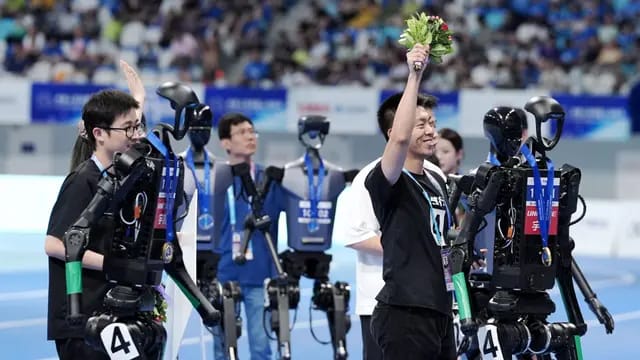
Unitree’s distinctive H1 humanoid robots garnered the most medals at last week’s Robot Olympics.
Nvidia releases Jetson Thor superbrain for robots
Premiere AI chipmaker Nvidia sees robotics as the Next Big Thing in artificial intelligence, a multi-trillion dollar opportunity. The company’s latest advance in the field was just released, the Jetson Thor mobile supercomputer. Small enough to fit inside a humanoid robot, it sports 2070 teraflops of compute power, enough to run a powerful AI model fast enough for real-time task planning and navigation. This allows “untethered” autonomous robot operation - no need for a link to a remote AI model in the cloud for the robot to perform its tasks. The unhoused module is approximately 3” by 4” in size, and weighs less than a pound. See the whimsical image below for a clue to its form factor.

Unboxing Nvidia’s new tiny but powerful supercomputer for robot brains, the Jetson Thor.
Deals
EPIC announces multiple medical chatbots in its EHR
Wisconsin-based Epic Systems Corporation is the dominant Electronic Health Record for large health systems, and is still helmed by its legendary 82 year-old female founder. Neither the size of its business empire or the age of its founder has made it slow or stodgy. Epic from the start of the AI revolution in late 2022 began devoting huge amounts of resources to develop artificial intelligence features in its EHR. At its most recent annual user conference last week, it announced 3 new AI chatbots - Emmie for patients, Art for clinicians, and Penny for revenue cycle operations.
Emmie is a chatbot assistant for patients using the MyChart portal, answering questions about lab results, proposing appointment times, reminding them of overdue health maintenance interventions such as colonoscopies, and more.
Art is a “copilot” for clinicians, able to function as an AI Scribe for drafting visit notes (built on Microsoft’s DAX Express technology), prepare orders for signing, and pull up historical data from the patient’s chart.
Penny is a smart assistant for revenue cycle operations, including drafting appeal letters, and suggesting more accurate medical coding for a visit.
Epic also hinted at more AI functionality in Cosmos, its de-identified clinical database based on 300 million patients, which is used for clinical research. Epic will also be training AI models on the Cosmos dataset, and due to the vast size of the dataset, these models may be more capable and accurate than any currently existing models.
Epic announced that is working on adding over 200 additional AI features to its EHR, leaving attendees with that “But wait! There’s more!” feeling at the end. As intended, one supposes.
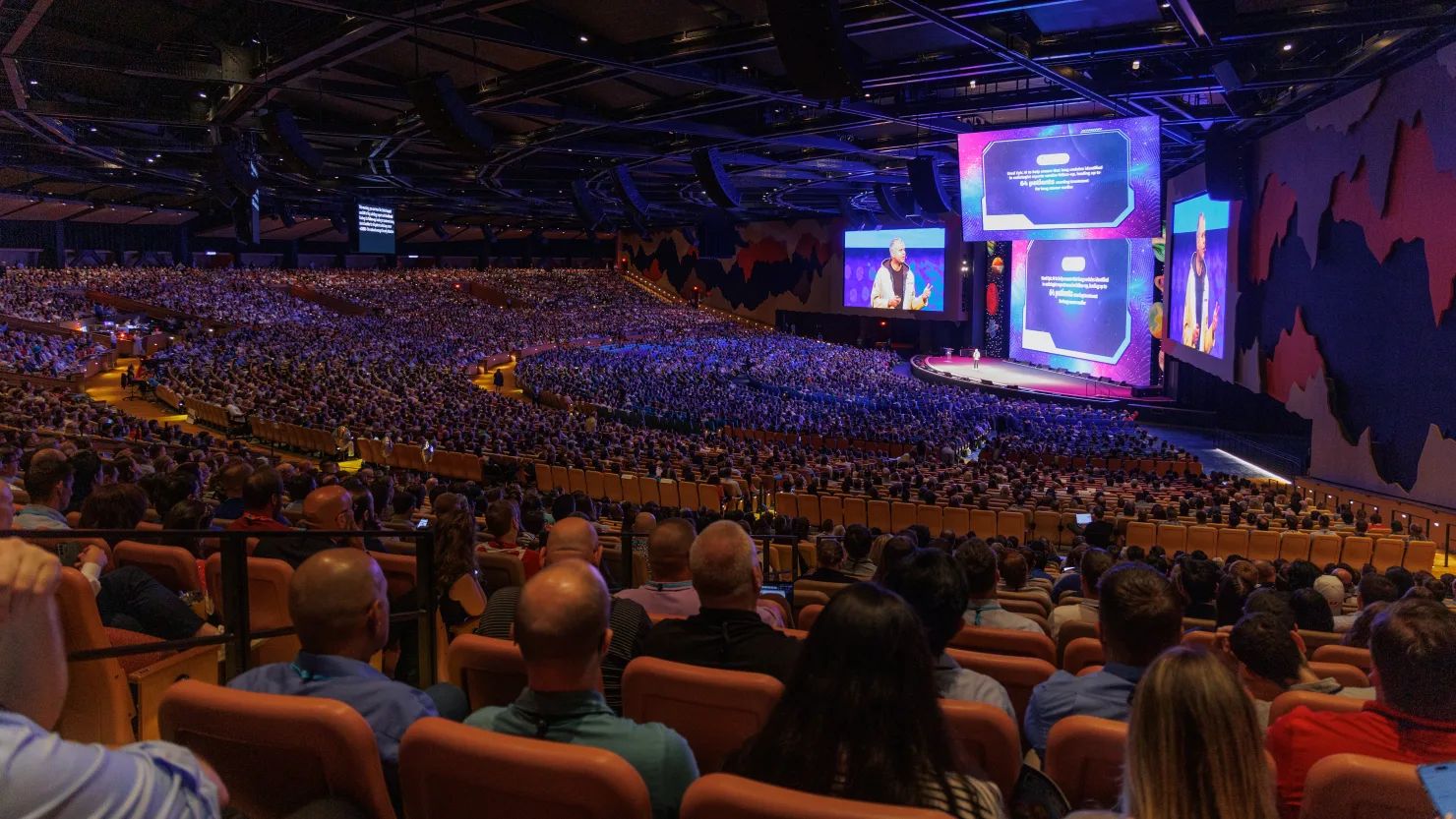
Thousands of users viewed bright screens in dark rooms at the annual Epic user conference.
Study finds that AI Scribes significantly decrease physician burnout
It’s now confirmed. The chief rationale of proponents of AI Scribes in health care has been the easing of the administrative burden on physicians, a burden which has been proven to be the greatest contributor the the epidemic of physician burnout. Now a study of the impact of introduction of AI Scribes at the Massachusetts General Brigham and the Emory health systems has shown a 21% decrease in physician burnout at MGB, and a 30.7% increase in documentation wellness at Emory. MGB Chief Medical Information Officer Rebecca Mishuris MD is quoted as saying that “[AI Scribes are] one of the most significant interventions on clinician burnout that has ever come to fruition”.
That's a wrap! More news next week.